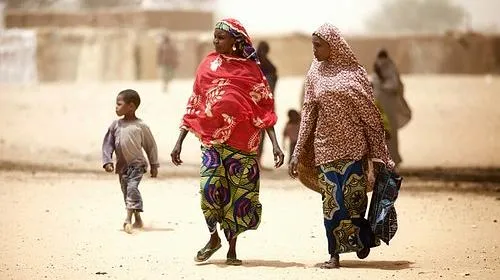Food insecurity and displacement place heavy burden on poor communities
NIAMEY, Niger—(July 6, 2015)– The international humanitarian organization CARE is gravely concerned by the increasing risk of hunger and vulnerability of millions of people in the Sahel region of West Africa. The ability of communities in Mali, Niger, Chad and other countries to cope with chronic food insecurity has been severely weakened by erratic weather patterns, epidemics and conflicts. The recent surge in population displacement will put these communities beyond the brink, unable to meet both their own basic needs and those who have fled from violence.
“These are people who have lived on the edge of survival for years, selling off whatever little assets they have to survive or migrating to find work in times of crisis, and then having even fewer means to cope with the next crisis”, said Rotimy Djossaya, CARE’s Country Director in Niger. “This vicious cycle of poverty must be broken. Communities in the Sahel cannot continue living like this.”
In Niger alone, 2.7 million people will be severely food insecure during the lean season lasting until September. Between January and mid-May, 97,708 severely malnourished children were admitted to therapeutic feeding centres nationwide. In Mali, 410,000 people are projected to be severely food insecure from June to August 2015. In Chad, 2.4 million people or 20 percent of the population will be food insecure in 2015.
“The underlying problems in the region are poverty and social injustice,” said CARE’s Djossaya. “There is an urgent need for something akin to the ‘Marshall plan’ that helped Europe recover from the devastation of the Second World War, to put the Sahel on a path towards peace and sustainable development. Providing smallholder farmers access to the tools and information they need to produce more effectively is an essential part of the solution, as well as promoting women’s rights and economic empowerment.”
CARE calls for a surge in funding to provide immediate life-saving assistance as well as long-term investments to break the vicious cycle of recurrent crises that have made communities ever less resilient. Given the growing challenges of climate change and resource scarcity in the Sahel, a significantly increased international effort over the next decade is needed to bring lasting change in the region and reduce the future need for humanitarian assistance. Meeting humanitarian needs in 2015 will require close to two billion dollars, of which only 30 percent is currently funded, according to the UN.
CARE works to assist affected people in Mali, Niger, Chad and Cameroon. In the current crisis CARE has provided more than 200,000 people with food, water purification tablets, emergency shelter and other supplies. In the longer term, CARE works to strengthen the resilience of vulnerable communities, with an emphasis on supporting the role of women and girls, who are all too often left out of community decision-making, denied the rights to decide when to have children, access education, own property and profit from business ventures.
Media contact: Holly Frew hfrew@care.org +1.404.979.9389
About CARE: Founded in 1945, CARE is a leading humanitarian organization fighting global poverty. CARE has more than six decades of experience helping people prepare for disasters, providing lifesaving assistance when a crisis hits, and helping communities recover after the emergency has passed. CARE places special focus on women and children, who are often disproportionately affected by disasters. To learn more, visit www.care.org.

